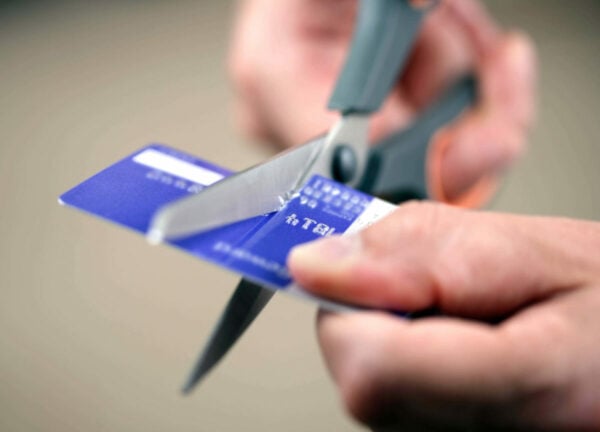As Americans hit record-high credit card debt levels, declined transactions may only get worse.
Each week, Consolidated Credit searches for financial research that can help you deal with your debt and budget. This week…
The interesting study
CompareCards.com conducted a nationwide survey of 1,047 adults in the U.S. who had a credit card declined within the past year. CompareCards.com is the credit card arm of the online lender LendingTree.
The big result

Roughly 12% of Americans had a debit card or credit card declined in 2017. That’s basically 26 million Americans who felt the sting of being told that their transaction didn’t go through. The most common reason for declined credit cards was that the card user exceeded their limit. However, the second most common reason was due to fraud protection measures. That means that at least some of those declines were not the fault of the card user. Instead, the fraud protection on these accounts flagged the transactions.
The fascinating details
This is a list of why cardholders said they’d encountered the rejected credit card:
- Credit limit exceeded 40%
- Fraud protection 29%
- Technology (system was down, etc.) 15%
- Missed a card payment 15%
- Not sure 13%
- Card was expired 13%
- Someone put a hold on the card 8%
- International purchase 5%
The reasons for declined debit card purchases were along the same lines:
- Insufficient funds in the account 32%
- Fraud protection 17%
- Not sure 12%
- Payment amount was too large 10%
- Exceeded daily spending limit 9%
- Technology (system down, etc.) 9%
- Hold placed on card 5%
- Card was locked (PIN entered incorrectly, etc.) 5%
- International purchase 0.4%
The survey also asked what the card user did after they were declined:
- 45% of credit card users switched to a different card, compared with 16% of debit users
- 28% of credit card users paid in cash, compared to 29% of debit users
- 21% of debit users called their bank, while only 5% of credit users called the creditor
- 31% of debit users decided not to make the purchase, compared with 17% of credit users
Finally, the survey asked if the cardholders felt embarrassed as a result of the decline. Most people do, but women feel the stress more than men:
- 89% of women were embarrassed versus 79% of men
What you can do
“Having a debit card or credit card declined is never a fun experience,” says Gary Herman, President of Consolidated Credit. “But you can avoid it by paying attention to the particulars of your accounts. The more you know about your accounts and the more often that you check them, the less likely you are to face rejection at checkout.”
Herman encourages card users to check their agreements for:
- Credit limit
- Daily spending limit
- Single-purchase spending limit
- How overdraft protection works
- International card usage rules
He also encourages people to take advantage of technology to know where their accounts stand.
“All major credit card issuers and most financial institutions have smartphone apps,” Herman says. “Even if your card is issued through a small independent bank or credit union, they probably have technology that makes it easy to check your balances. This can help you avoid the embarrassment of having a credit card declined. Better to check your balance in advance and see that you don’t have the funds than to hear it at checkout.”
Herman also encourages people to review the fraud protection policy on the card. This will help you understand when fraud protection may be triggered.
“Built-in fraud protection is a good thing, but it can lead the card issuer to reject certain transactions if they’re outside your normal purchasing habits,” Herman explains. “Know your card’s fraud protection policy. If the card gets rejected, you can usually just call customer service. Once you verify that you’re the one using the card, the transaction will usually go through.”
If you’re hitting the limits on your credit cards and you’re tired of being declined, we can help. Talk to a certified credit counselor to take control.